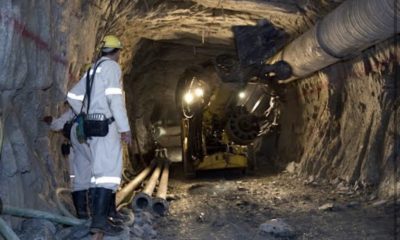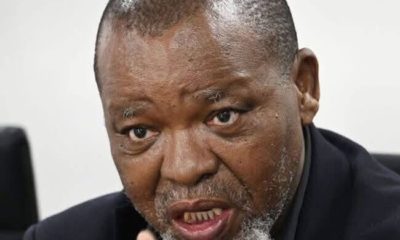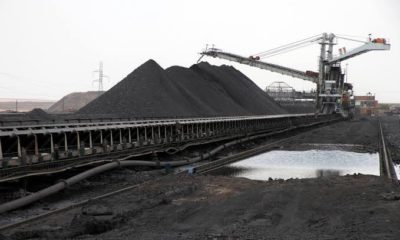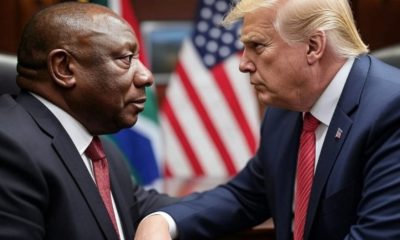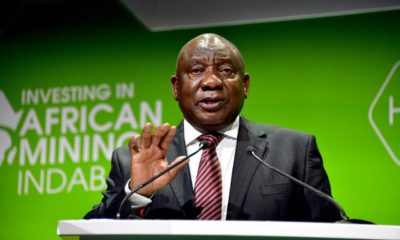Business
Minerals, Politics and Power: Mantashe and Sibanye CEO Locked in Public Clash Over US Strategy

When private ambition collides with public authority
A subtle but sharp battle has escalated in South Africa’s mining world. At stake is nothing less than how and by whom, the country’s strategic mineral wealth is offered to the United States.
Government says ‘wait your turn’
Earlier this week, a proposal led by Sibanye Stillwater CEO Neal Froneman, along with other mining executives advising President Cyril Ramaphosa, proposed opening Africa’s critical mineral supply to the US. It was positioned as a strategic win for both sides, to curb China’s dominance in rare earths and boost South African exports.
But Minister of Mineral Resources Gwede Mantashe was not amused. Speaking out bluntly, Mantashe criticized the initiative for proceeding without any input from his department—or the broader Minerals Council. He argued that only government has the mandate to package and negotiate national resources in global diplomacy.
Mantashe insisted privately-led initiatives risk favouring corporate agendas over national sovereignty.
Historical tensions between state and mining elites
This showdown isn’t new. The relationship between Pretoria and mining giants has often been fraught, from apartheid-era extraction to the modern era of BEE and resource nationalism.
Mantashe’s reputation as an ANC stalwart and vocal defender of state-led policy further intensified the clash. This episode feels not just like a policy dispute, but a leadership test between corporate ambition and constitutional authority.
Why it matters: Minerals are more than exports
South Africa holds some of the world’s richest deposits of platinum-group metals, manganese, vanadium, and gold. With global demand surging for clean-energy minerals, these resources aren’t just products, they’re strategic levers in global geopolitics.
Reuters and local industry sources confirm South Africa hasn’t halted exports to the US or banned American business locally. But the dispute highlights deeper tensions in how the country negotiates global entry.
Public reaction and political context
On social media, the reaction has been sharp. Some see Sibanye’s push as forward-thinking diplomacy that could bring jobs and investment. Others argue it sidesteps national oversight and plays fast and loose with public trust.
Meanwhile, tensions persist between Pretoria and Washington over land expropriation policy, trade tariffs, and diplomatic pushback. In February, US President Trump threatened to cut assistance to South Africa and Mantashe responded with a call for African nations to withhold minerals in retaliation. Reuters later found such remarks “not true” in policy—but they stoked wide debate.
What’s next: Who gets to speak for South Africa?
At its heart, the row is about who leads South Africa’s resource diplomacy. Is it corporate boards or government ministries? Mantashe insists that sovereignty rests with his office and that Pretoria will not let private actors define national strategy.
On the other side, healthable analysts suggest collaboration could offer quicker access to markets and investment. But for now, the clash underscores the urgency of a clear, unified approach and how resource politics remains both a domestic and global battleground.
{Source: Financial Post}
Follow Joburg ETC on Facebook, Twitter , TikTok and Instagram
For more News in Johannesburg, visit joburgetc.com

